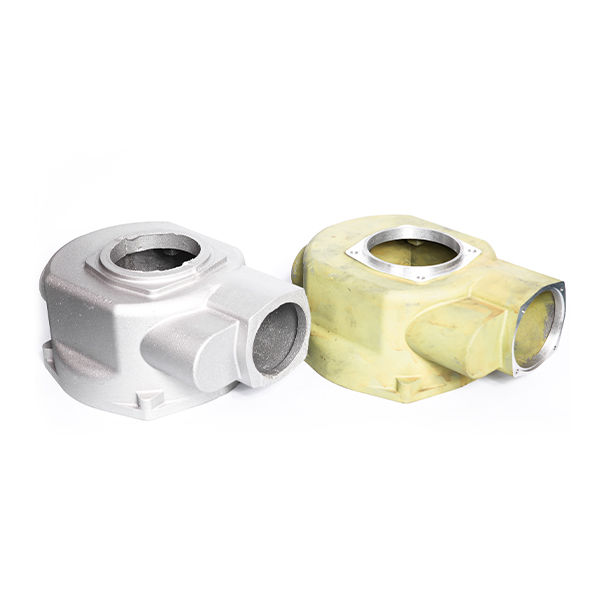Mobile:+86-311-808-126-83
Email:info@ydcastings.com
iron valve
The Iron Valve A Critical Component in Modern Engineering
In the realm of industrial applications, few components are as vital as valves, with iron valves standing out for their robustness and reliability. Valves serve as control devices in various systems, regulating the flow and pressure of fluids, gases, and slurries. Among the various types of valves, iron valves are especially valued for their durability and resistance to corrosion, making them indispensable in numerous sectors ranging from water supply to chemical processing.
What Are Iron Valves?
Iron valves are typically made from cast iron or ductile iron, materials chosen for their strength and ability to withstand high-pressure conditions. Cast iron is known for its excellent wear resistance, while ductile iron offers enhanced flexibility, making it less prone to breakage. This versatility makes iron valves suitable for a range of applications, from residential plumbing to heavy-duty industrial uses.
One of the most common types of iron valves is the gate valve, which allows for smooth flow with minimal pressure drop when fully open. Gate valves are widely used in water and sewage systems. Another popular type is the globe valve, known for its excellent throttling capabilities. Globe valves are often found in systems requiring precise flow control, such as heating and cooling systems.
Advantages of Using Iron Valves
1. Durability Iron valves are built to last. They withstand extreme conditions and are less likely to degrade than valves made from other materials. This longevity is particularly advantageous in process industries where equipment downtime can lead to significant financial losses.
2. Corrosion Resistance While iron can corrode, modern treatments and coatings help enhance corrosion resistance. Additionally, the inherent properties of ductile iron make it suitable for use in environments containing aggressive chemicals or hostile conditions.
3. Temperature Resistance Iron valves can handle high temperatures, making them ideal for steam applications and other high-temperature environments. This ability to maintain integrity under thermal stress is essential in power plants and manufacturing facilities.
iron valve

4. Cost-Effectiveness Compared to other materials like stainless steel or bronze, iron valves are generally more affordable, providing a cost-effective solution for both small and large-scale operations.
Challenges and Considerations
Despite their many advantages, there are some considerations when using iron valves. One issue is weight; iron valves tend to be heavier than their plastic or aluminum counterparts. Depending on the installation site, this added weight may necessitate additional support structures.
Additionally, while iron valves are generally resistant to corrosion, if not properly maintained, they can still succumb to rust over time, particularly in wet environments. Regular inspection and maintenance can help mitigate this issue, ensuring the valves remain in good working condition.
Finally, adequate sealing is crucial to prevent leaks. Over time, seals and gaskets may deteriorate, leading to potential failures. Utilizing high-quality sealing materials and conducting regular checks can help maintain performance.
Future Trends
As industries evolve, so too do the materials and technologies used in valve manufacturing. The future of iron valves looks promising, with advancements in metallurgical techniques producing lighter and more corrosion-resistant alloys. Additionally, the integration of smart technologies into valve systems for real-time monitoring and automation is gaining traction. This trend toward digitalization will undoubtedly increase efficiency and safety in operations involving iron valves.
Conclusion
Iron valves play a crucial role in the infrastructure of many industries, offering reliability, durability, and cost-effectiveness. Their ability to manage fluids and gases in diverse environments makes them a staple in fields ranging from construction to energy production. As technology advances and industries demand more durable and intelligent systems, iron valves are poised to remain at the forefront, adapting and evolving to meet the challenges of the future. Whether for a simple home plumbing system or complex industrial processes, the iron valve will continue to be a fundamental component, ensuring smooth operations and safety for years to come.
-
Why Should You Invest in Superior Pump Castings for Your Equipment?NewsJun.09,2025
-
Unlock Performance Potential with Stainless Impellers and Aluminum End CapsNewsJun.09,2025
-
Revolutionize Your Machinery with Superior Cast Iron and Aluminum ComponentsNewsJun.09,2025
-
Revolutionize Fluid Dynamics with Premium Pump ComponentsNewsJun.09,2025
-
Optimizing Industrial Systems with Essential Valve ComponentsNewsJun.09,2025
-
Elevate Grid Efficiency with High-Precision Power CastingsNewsJun.09,2025











